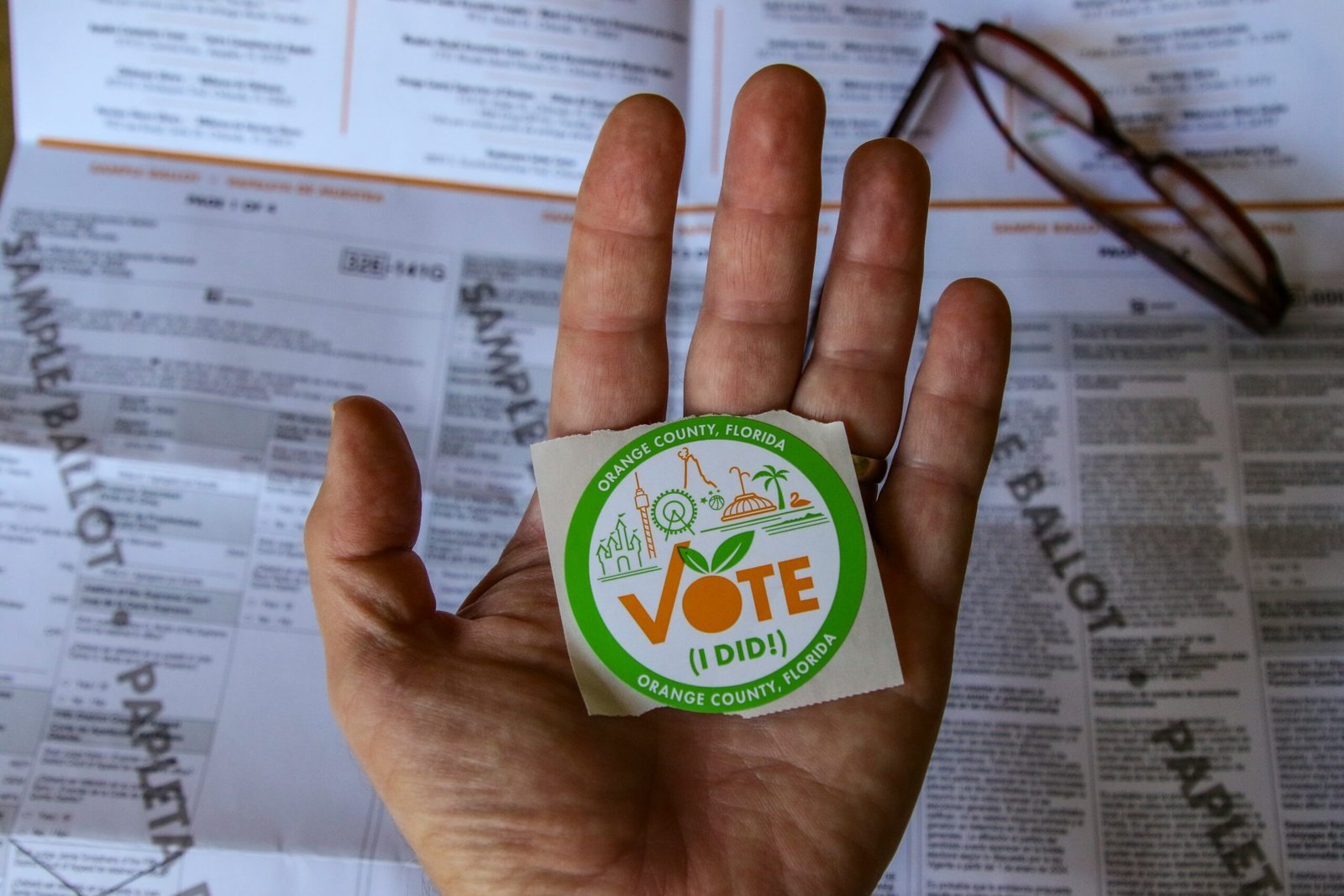Understanding the Election Commission of India: Its Role, Functions, and Importance

Introduction to the Election Commission of India
The Election Commission of India (ECI) serves as the principal governing body responsible for administering elections in the country. Established on January 25, 1950, the commission was instituted in consonance with Article 324 of the Indian Constitution, which empowers the ECI to oversee the conduct of free and fair elections in India. This date is celebrated annually as National Voter’s Day, emphasizing the importance of voter engagement and participation in a democratic society.
The significance of the ECI lies in its constitutional status, which grants it the authority to regulate the electoral process, ensuring that elections are conducted in a manner that is both transparent and impartial. The commission is tasked with various responsibilities, including the preparation of electoral rolls, overseeing the nomination process of candidates, and ensuring compliance with the Model Code of Conduct during elections. This role is critical in promoting the integrity and sanctity of the electoral process, thereby bolstering public confidence in democracy.
The Election Commission operates as an autonomous body, independent from governmental influence, which allows it to function effectively in its duties. It is comprised of a Chief Election Commissioner and two Election Commissioners, all appointed by the President of India. The ECI plays an essential role in empowering citizens, as it facilitates the electoral process, thereby enabling them to exercise their right to vote. Its mandate extends beyond just conducting elections; it also encompasses promoting voter education, ensuring accessibility for all eligible voters, and curbing malpractices like electoral fraud and bribery. Thus, the Election Commission of India stands as a cornerstone of Indian democracy, ensuring that the electoral process remains fair, efficient, and inclusive for all segments of society.
Composition of the Election Commission
The Election Commission of India (ECI) is a constitutional authority responsible for administering elections in the country. The structure of the ECI is comprised of a Chief Election Commissioner (CEC) and two Election Commissioners, collectively referred to as the Election Commission. This tripartite composition is vital in ensuring that the electoral process is free, fair, and impartial.
The President of India appoints the Chief Election Commissioner and the Election Commissioners. Typically, these appointments are made based on seniority among the existing officials, lending credibility to the selection process. The tenure for these officials is set at five years, although they can remain in service until the age of 65. Such a fixed tenure is significant as it shields them from political pressures and helps to maintain the integrity of their roles. As independent constitutional authorities, both the CEC and Election Commissioners wield considerable power and influence over the electoral landscape of India.
The impartiality of the Election Commission is paramount in maintaining electoral integrity. Each member is required to exercise their duties without bias, ensuring that all political candidates and parties are treated equitably during the election process. This objectivity not only fosters public trust in the electoral system but also upholds democratic principles. Moreover, the independence of the ECI is reinforced by various provisions in the Constitution that protect its officials from arbitrary removal. This independence is critical, especially in a diverse and populous country like India, where elections are often fraught with challenges. Ensuring that the composition of the Election Commission reflects a commitment to fairness strengthens the democratic fabric of the nation.
Key Functions of the Election Commission
The Election Commission of India (ECI) plays a vital role in the democratic framework of the nation. One of its core functions is the preparation and updating of electoral rolls. This task involves maintaining an accurate and comprehensive list of eligible voters, which is imperative in ensuring that every citizen can exercise their franchise. The ECI regularly conducts revision of electoral rolls, which includes verifying the details of voters, adding new entries, and deleting those who are no longer eligible, thereby ensuring a fair electoral process.
Another significant function of the ECI is overseeing the conduct of elections. This includes not only national and state elections but also those for local bodies. The ECI is responsible for setting election schedules, ensuring that they are conducted in a free and fair manner. It also plays a crucial role in deploying election officers and establishing polling stations, thereby facilitating a smooth electoral process across the vast and diverse landscape of India.
The Commission also ensures adherence to election laws. It has the authority to enforce compliance with the Model Code of Conduct, which governs the behavior of political parties and candidates during election campaigns. This function is central to demarcating the boundaries of acceptable campaign practices, thereby promoting transparency and fairness. The ECI actively monitors electoral activities to mitigate malpractices that could compromise the integrity of elections.
In addition, monitoring campaign finance is another critical responsibility of the ECI. The Commission diligently oversees the funding and expenditure of political parties and candidates to ensure that elections are not unduly influenced by monetary factors. By regulating and scrutinizing campaign finances, the ECI protects the democratic process and ensures that elections are contested on an equitable footing.
Election Management and Technology
The Election Commission of India (ECI) has significantly transformed the electoral landscape through the integration of advanced technology in election management. One of the pivotal innovations introduced by the ECI is the Electronic Voting Machine (EVM). This technology streamlines the voting process by facilitating a secure and efficient method for casting votes. EVMs not only reduce the complexities associated with paper ballots but also minimize the time taken to conduct elections. Their deployment has enhanced the accuracy of vote counting while mitigating issues related to human error and voting malpractices.
Complementing EVMs, the introduction of Voter Verifiable Paper Audit Trails (VVPATs) has further strengthened the integrity of the electoral process. VVPATs provide a physical record of the votes cast, allowing voters to verify that their votes are accurately recorded. This feature has been a monumental step towards increasing transparency and voter confidence in the election mechanism. With the implementation of VVPATs, the ECI aims to ensure that citizens feel secure about their electoral choices, as they can confirm their selections with the paper trail.
Beyond EVMs and VVPATs, the ECI has embraced various digital platforms for managing the electoral process. Initiatives such as online voter registration, an accessible voter helpline, and mobile applications for elections have made the process more user-friendly. These technological advancements not only enhance efficiency but also broaden the reach of the electoral process to ensure that even the most remote villages have access to information and services related to voting.
In summary, the integration of technology in election management by the Election Commission of India represents a significant leap towards achieving greater efficiency, transparency, and public trust in the electoral system.
Challenges Faced by the Election Commission
The Election Commission of India (ECI) plays a crucial role in ensuring free and fair elections in the world’s largest democracy. However, its mandate does not come without numerous challenges that must be addressed to maintain the integrity of the electoral process. One prominent issue is electoral malpractices, which can include vote buying, coercion, and manipulation of electoral rolls. These practices undermine the democratic process, creating an urgent need for the ECI to implement stringent measures to prevent and address such occurrences.
Another significant challenge is the pressure from political parties that may attempt to influence the Commission’s decisions. Political dynamics in the country often lead to undue interference, which can compromise the ECI’s autonomy. The Commission must navigate these political pressures carefully to uphold its integrity and ensure that elections are conducted without bias.
In managing large-scale elections in a diverse and populous nation, the ECI faces logistical challenges. With over a billion voters, organizing an election involves extensive coordination among various stakeholders, including state governments, law enforcement agencies, and civil society organizations. The ECI must ensure that election officials are adequately trained and that the necessary infrastructure is in place to facilitate smooth voting processes across different regions.
Ensuring accessibility is another critical challenge for the Election Commission. Voter accessibility can be affected by geographical barriers, socioeconomic factors, and systemic inequalities. The ECI has been working on initiatives such as mobile polling stations and voter education programs to reach marginalized groups, thereby enhancing civic participation.
Finally, the Election Commission employs various strategies to tackle these challenges, including the use of technology for monitoring electoral processes, building strong legal frameworks for regulation, and increasing transparency in its operations. By adopting a multifaceted approach, the ECI aims to strengthen the electoral system in India and reinforce public trust in the democratic process.
Recent Initiatives by the Election Commission
The Election Commission of India (ECI) has undertaken numerous initiatives recently aimed at enhancing the electoral process and ensuring a more inclusive democracy. One of the key areas of focus has been voter awareness campaigns. Recognizing the importance of an informed electorate, the ECI has implemented various programs designed to educate citizens about their voting rights, the electoral process, and the significance of participating in elections. These campaigns have leveraged multiple platforms, including social media, traditional media, and community outreach, to effectively reach a broader audience.
In addition to promoting voter awareness, the ECI has introduced online services that simplify various aspects of the voting process. The launch of the Voter Helpline App enables citizens to easily check their registration status, find polling stations, and access crucial information regarding the electoral process right from their smartphones. This digital innovation aims to streamline access to voting for all citizens while also fostering transparency within the system. The move towards online services aligns with the growing trend of digitization in governance, making it easier for people to navigate the electoral landscape.
Furthermore, the Election Commission has established specific measures to facilitate the participation of marginalized groups in elections. Recognizing that certain segments of the population, such as women, homeless individuals, and people with disabilities, often face barriers to voting, the ECI has developed targeted initiatives. These include establishing help desks at polling stations, providing accessibility options, and organizing special voter registration drives aimed at these underrepresented groups. Such efforts reflect the ECI’s commitment to ensuring that every voice is heard in the democratic process, thereby strengthening the foundation of Indian democracy.
The Role of ECI in Voter Education and Awareness
The Election Commission of India (ECI) plays a pivotal role in promoting voter education and awareness, ensuring that citizens are well-informed about their electoral rights and responsibilities. Recognizing the significance of an informed electorate in a vibrant democracy, the ECI undertakes comprehensive initiatives to facilitate the understanding of the voting process among the populace. One of the primary objectives of these initiatives is to cultivate an inclusive environment where all eligible voters can participate in the electoral process without any apprehension or confusion.
To achieve this objective, the ECI employs a variety of platforms and strategies designed to reach diverse segments of the population. Among its many efforts, the commission actively conducts awareness campaigns through traditional media such as television, radio, and print, as well as leveraging modern digital platforms like social media and websites. These campaigns are tailored to communicate the significance of participation in the democratic process, making it clear that voting is not just a right but a responsibility that facilitates governance and accountability.
Additionally, the ECI organizes workshops, seminars, and interactive sessions in educational institutions, communities, and local governing bodies to engage citizens directly. These outreach programs are particularly crucial for first-time voters, as they provide essential information on the voting procedure, including how to register, the significance of choosing candidates wisely, and the logistics involved on polling day. By utilizing innovative methods such as mobile apps and online portals, the ECI ensures that vital information is readily available to the public at their convenience.
Moreover, the ECI collaborates with various stakeholders, including non-governmental organizations (NGOs) and civil society groups, to maximize its outreach efforts. These partnerships amplify the ECI’s capacity to educate citizens, thereby fostering a culture of active participation and engagement in the electoral process. Ultimately, these comprehensive educational endeavors reflect the ECI’s commitment to strengthening democracy in India through informed and engaged citizenry.
International Comparison: ECI and Global Election Commissions
The Election Commission of India (ECI) plays a crucial role in managing electoral processes and ensuring the integrity of elections in one of the world’s largest democracies. To understand its effectiveness, it is beneficial to compare the ECI with election commissions in other democratic nations, such as the United States, Canada, and the United Kingdom. These comparative analyses highlight varying structures, functions, and methods of ensuring electoral integrity across different jurisdictions.
In the United States, the electoral process is decentralized, with each state having its own election commission. This leads to significant variations in electoral procedures and regulations. While the decentralized nature allows states to customize their electoral systems, it also raises concerns about uniformity and transparency. Unlike the ECI, which operates under a single framework to govern elections across the nation, U.S. states sometimes struggle with maintaining consistency in the conduct of elections, making the ECI’s consolidated approach particularly noteworthy.
Contrastingly, Canada’s independent body, Elections Canada, shares similarities with the ECI in terms of its autonomous status and comprehensive mandate to oversee federal elections. It conducts public information campaigns, engages in voter education, and enforces electoral laws to ensure fairness. The cooperation between federal entities and provincial governments in Canada can serve as a lesson for the ECI, highlighting the potential for collaborative efforts to enhance voter participation.
In the United Kingdom, the Electoral Commission oversees elections and ensures that they are conducted in accordance with laws. It operates with a focus on transparency and accountability, elements that resonate with the ECI’s mandate. However, the UK’s elections are influenced by political parties in ways that the ECI, with its constitutional backing, can more effectively mitigate. The comparative study of these commissions underscores the importance of robust legal frameworks in upholding electoral integrity.
Through these comparisons, best practices emerge that the ECI can adapt or implement, enhancing its functions and frameworks to further strengthen the democratic process in India.
Conclusion: The Future of India’s Elections
The Election Commission of India (ECI) plays a pivotal role in shaping the democratic framework of the country. As the independent authority responsible for conducting free and fair elections, the ECI ensures that the essence of democracy is upheld. Through rigorous monitoring, regulation of political parties, and oversight of the electoral process, the Commission safeguards the integrity of elections, which is vital for a thriving democracy.
In the face of evolving political scenarios and heightened complexities, the ECI’s role has become increasingly essential. The growing influence of technology in the electoral process has necessitated the adaptation of electoral management frameworks. Measures such as electronic voting machines, online voter registration, and the use of social media platforms for voter engagement are all indications of the Commission’s commitment to modernizing the electoral landscape. These advancements not only streamline the electoral process but also enhance transparency, accessibility, and participation among citizens.
Moreover, as the aspirations of the electorate change with evolving socio-economic dynamics, the ECI must continually reassess its strategies and methodologies. In ensuring inclusivity, the Commission is tasked with addressing the needs of diverse demographics, including marginalized groups, women, and youth. This adaptability is crucial in promoting electoral participation, thus strengthening the democratic fabric of India.
Looking ahead, it is clear that the Election Commission of India will continue to play a seminal role in bolstering democracy. As political contexts shift and new challenges emerge, the ECI’s proactive approach will be imperative in maintaining the sanctity of elections. By fostering a culture of accountability and transparency, the Commission will both enhance the public’s trust in the electoral process and facilitate the rightful exercise of democratic freedoms.
Share this content:



Post Comment